BMW iX1 vs Citroen C4 – Differences & prices compared
Compare performance, boot space, consumption and price in one view.
Find out now: which car is the better choice for you – BMW iX1 or Citroen C4?
The BMW iX1 (SUV) comes with a Electric engine and Automatic transmission. In comparison, the Citroen C4 (SUV) features a Petrol, Electric or Petrol MHEV engine with Automatic transmission.
When it comes to boot capacity, the BMW iX1 offers 490 L, while the Citroen C4 provides 510 L – depending on how much space you need. If you’re looking for more power, decide whether the 313 HP of the BMW iX1 or the 156 HP of the Citroen C4 suits your needs better.
In terms of consumption, the values are 15.80 kWh per 100 km for the BMW iX1, and 14.50 kWh4.70 L for the Citroen C4.
Price-wise, the BMW iX1 starts at 41800 £, while the Citroen C4 is available from 20000 £. Compare all the details and find out which model fits your lifestyle best!
BMW iX1
The BMW iX1 stands out as a versatile addition to the electric vehicle market, seamlessly combining compact dimensions with advanced electric technology. Its sophisticated design elements and premium interiors ensure a luxurious driving experience, while the vehicle's performance focuses on delivering both efficiency and agility. With enhanced connectivity features and an emphasis on sustainability, this model represents a significant step forward in BMW's commitment to a greener future.
details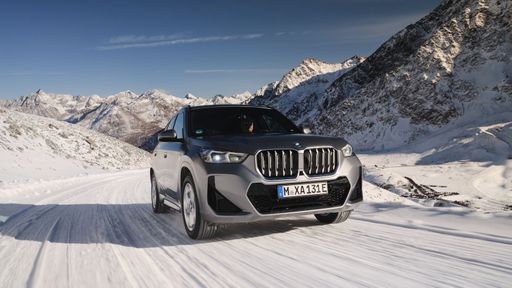 @ press.bmwgroup.com
@ press.bmwgroup.com
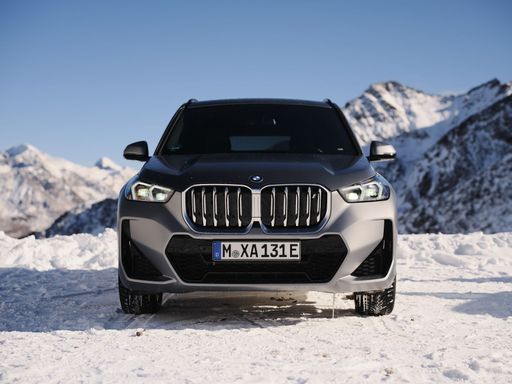 @ press.bmwgroup.com
@ press.bmwgroup.com
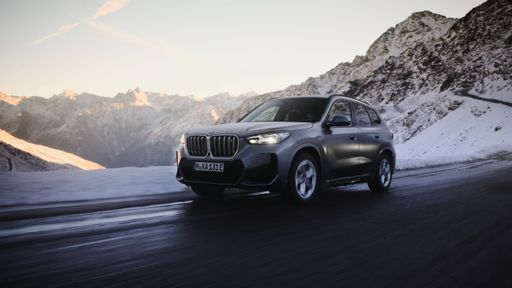 @ press.bmwgroup.com
@ press.bmwgroup.com
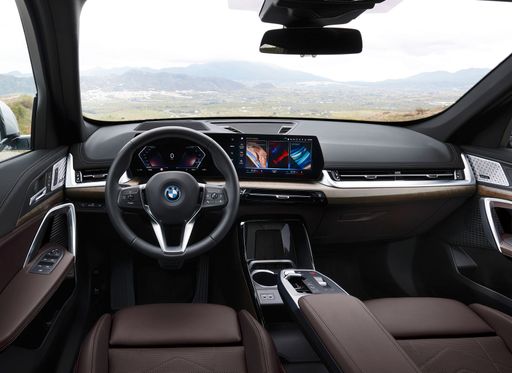 @ press.bmwgroup.com
@ press.bmwgroup.com
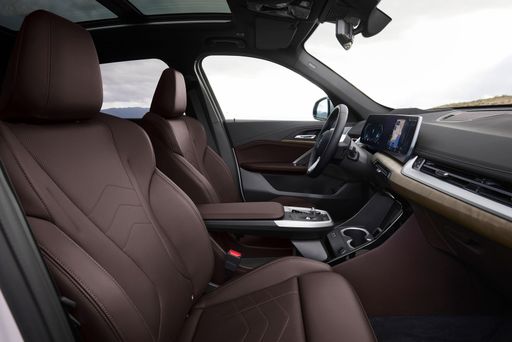 @ press.bmwgroup.com
@ press.bmwgroup.com
Citroen C4
The Citroen C4 combines contemporary style with a comfortable driving experience, making it a standout choice in the compact car segment. Its sleek silhouette is complemented by a range of thoughtful interior features, providing both driver and passengers with a pleasant journey. With modern technology seamlessly integrated into its design, the C4 offers an efficient performance that caters to urban and rural environments alike.
details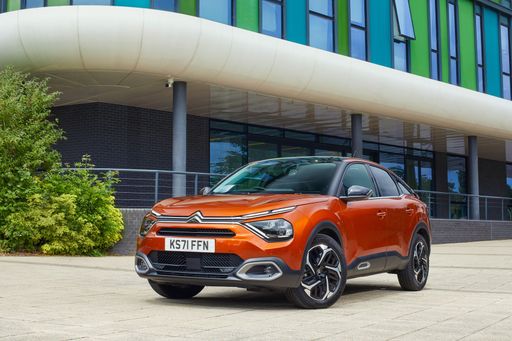 @ media.stellantis.com
@ media.stellantis.com
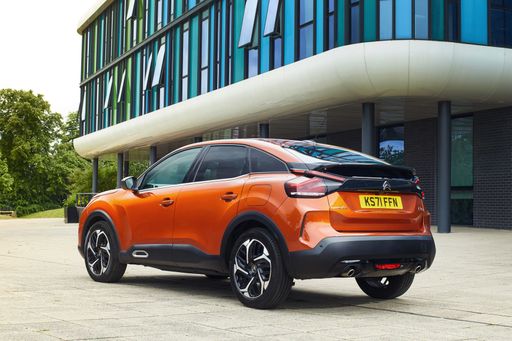 @ media.stellantis.com
@ media.stellantis.com
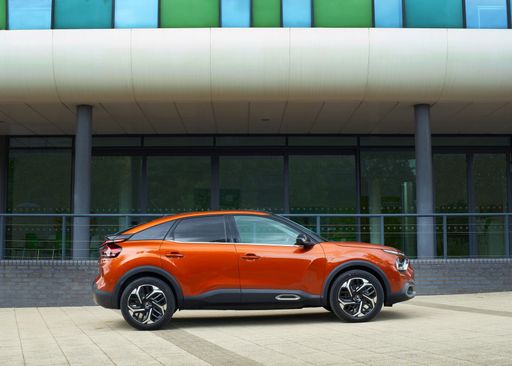 @ media.stellantis.com
@ media.stellantis.com
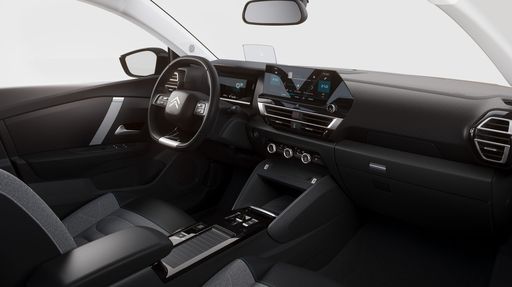 @ media.stellantis.com
@ media.stellantis.com
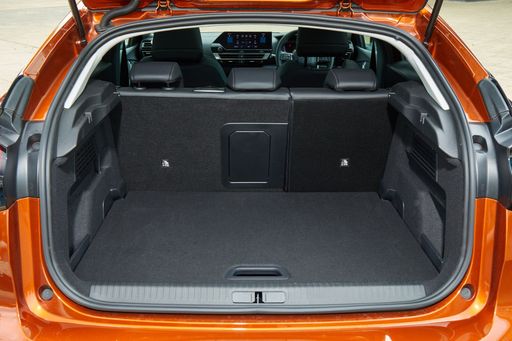 @ media.stellantis.com
@ media.stellantis.com

|

|
|
|
|
Costs and Consumption |
|
|---|---|
|
Price
41800 - 54600 £
|
Price
20000 - 32000 £
|
|
Consumption L/100km
-
|
Consumption L/100km
4.7 - 5.9 L
|
|
Consumption kWh/100km
15.8 - 17.1 kWh
|
Consumption kWh/100km
14.5 - 15.3 kWh
|
|
Electric Range
436 - 463 km
|
Electric Range
354 - 427 km
|
|
Battery Capacity
64.80 kWh
|
Battery Capacity
46 - 51 kWh
|
|
co2
0 g/km
|
co2
0 - 134 g/km
|
|
Fuel tank capacity
-
|
Fuel tank capacity
44 - 50 L
|
Dimensions and Body |
|
|---|---|
|
Body Type
SUV
|
Body Type
SUV
|
|
Seats
5
|
Seats
5
|
|
Doors
5
|
Doors
4 - 5
|
|
Curb weight
1940 - 2085 kg
|
Curb weight
1341 - 1659 kg
|
|
Trunk capacity
490 L
|
Trunk capacity
380 - 510 L
|
|
Length
4500 mm
|
Length
4350 - 4580 mm
|
|
Width
1845 mm
|
Width
1800 - 1834 mm
|
|
Height
1616 mm
|
Height
1520 - 1525 mm
|
|
Payload
495 kg
|
Payload
381 - 406 kg
|
Engine and Performance |
|
|---|---|
|
Engine Type
Electric
|
Engine Type
Petrol, Electric, Petrol MHEV
|
|
Transmission
Automatic
|
Transmission
Automatic
|
|
Transmission Detail
Reduction Gearbox
|
Transmission Detail
Automatic Gearbox, Dual-Clutch Automatic, Reduction Gearbox
|
|
Drive Type
Front-Wheel Drive, All-Wheel Drive
|
Drive Type
Front-Wheel Drive
|
|
Power HP
204 - 313 HP
|
Power HP
110 - 156 HP
|
|
Acceleration 0-100km/h
5.6 - 8.6 s
|
Acceleration 0-100km/h
8 - 10.8 s
|
|
Max Speed
170 - 180 km/h
|
Max Speed
150 - 210 km/h
|
|
Torque
250 - 494 Nm
|
Torque
205 - 270 Nm
|
|
Number of Cylinders
-
|
Number of Cylinders
3
|
|
Power kW
150 - 230 kW
|
Power kW
81 - 115 kW
|
|
Engine capacity
-
|
Engine capacity
1199 cm3
|
General |
|
|---|---|
|
Model Year
2022 - 2023
|
Model Year
2025
|
|
CO2 Efficiency Class
A
|
CO2 Efficiency Class
D, A, C
|
|
Brand
BMW
|
Brand
Citroen
|
BMW iX1
A New Era of Innovation: Meet the BMW iX1
The automotive world has seen a seismic shift towards sustainability and electrification, and BMW has solidified its place in this evolution with the introduction of the BMW iX1. As a fully electric SUV, the iX1 serves as a testament to how luxury, performance, and eco-consciousness can harmoniously blend in the modern automotive landscape.
Exquisite Design Meets Purposeful Engineering
The BMW iX1 is not just an electric vehicle; it's an embodiment of cutting-edge design and technology. With its bold SUV silhouette, the iX1 boasts dimensions of 4500 mm in length, 1845 mm in width, and 1616 mm in height, providing a spacious yet agile presence on the road. Its dynamic aesthetic is complemented by an aerodynamic form that enhances efficiency, offering a drag coefficient that rivals traditional SUV models.
Powertrain and Performance Specifications
Beneath the hood of the BMW iX1 lays an electric motor that signifies the future of automotive engineering. Available variants offer power outputs ranging from 204 to 313 PS (150 to 230 kW). The iX1 comes with either a front-wheel or all-wheel drivetrain, catering to different driving preferences. The xDrive30 variant, in particular, features all-wheel drive, delivering up to 313 PS for those who crave enhanced traction and control.
With a commendable electric consumption of 15.8 to 17.1 kWh per 100 km, the iX1 strikes a fine balance between power and efficiency. Its acceleration stats are equally impressive, with the ability to go from 0-100 km/h in as little as 5.6 seconds. This ensures that while it's eco-friendly, it does not compromise on the exhilaration factor. The vehicle can reach a top speed range between 170 and 180 km/h.
A Journey Without Interruptions: Range and Battery Life
The iX1's battery, boasting a capacity of 64.8 kWh, provides a substantial driving range of 436 to 463 km on a single charge, depending on the variant. This means long road trips are not only feasible but enjoyable, eliminating the range anxiety often associated with electric vehicles.
Comfort and Technological Interior
Inside, the iX1 exemplifies BMW’s commitment to luxury and innovation. It’s a five-seater SUV designed with comfort at its forefront, featuring advanced technological interfaces that enrich the driving experience. The spacious cabin offers 490 litres of boot space, ensuring practicality without sacrificing style.
In terms of monthly costs, owning an iX1 can range between €1,147 and €1,453, considering the zero-emission appeal with a CO2 efficiency class of A.
The Financial Aspect of Sustainability
With a price range from €48,400 to €63,140, the BMW iX1 isn't just a vehicle—it's an investment in sustainable motoring. Factoring in a cost of around 45.9 to 58.1 cents per kilometre, the iX1 offers an economically viable option for the eco-conscious driver.
Conclusion: The Future Is Now
The BMW iX1 stands as a beacon of what the future holds for zero-emission vehicles. With a melding of sustainability, performance, and luxury, it's not just a car, but a glimpse into the next chapter of automotive history.
Citroen C4
A Glimpse into the Citroën C4: Design Meets Technology
The Citroën C4 has long been a symbol of innovation and style in the world of compact cars. Combining sleek design with cutting-edge technology, the 2023-2024 models offer drivers a host of options and features tailored to modern needs. Whether powered by petrol, diesel, or hybrid engines, the Citroën C4's various configurations offer something for everyone.
Powertrain Options: Choosing Your Perfect Fit
The Citroën C4 accommodates a range of power preferences, offering diesel, petrol, mild-hybrid, and 100% electric versions. Its engine choices range from a 101 PS petrol engine to a 156 PS electric motor, providing versatile performance across the board. The hybrid models offer an impressive balance of power and efficiency, with the mild-hybrid petrol models achieving consumption rates as low as 4.8 L/100km. For those leaning towards eco-friendly options, the electric variants do not disappoint, boasting an economical use of 14.7 to 15.3 kWh/100km, with a robust range extending up to 422 km.
Advanced Drive: Transmission and Handling
Every Citroën C4 is equipped with front-wheel drive, ensuring a stable and confident driving experience. The models offer both manual and automatic transmissions, with choices such as a slick automatic gearbox or a manual shift for those who prefer a more hands-on driving experience. The automatic transmissions enhance driving comfort, particularly in urban areas, while the manual alternatives cater to enthusiasts who enjoy a more engaged driving style.
Interior Innovation: Comfort and Connectivity
Inside, the Citroën C4 does not disappoint. With seating for five and ample boot space ranging from 380 to 510 litres, it ensures comfort and practicality. Advanced technological features include a multifaceted infotainment system that supports seamless connectivity, making every journey as enjoyable as possible. The array of trim lines like Max and Plus offer varying degrees of luxury and convenience, allowing customers to tailor their vehicle to their personal preferences.
Performance and Environmental Impact
The C4's performance metrics are equally impressive, with acceleration from 0-100 km/h as quick as 8 seconds and a top speed of up to 206 km/h in selected models. The CO2 efficiency rating of the C4 spans from class A to D, ensuring drivers can find a version that aligns with their sustainability goals without compromising on performance.
Safety and Future-Ready Features
Citroën has equipped the C4 with a range of safety features designed to protect drivers and passengers alike. From advanced driver assistance systems to robust structural integrity, the C4 makes safety a priority. Additionally, forward-thinking features such as adaptive cruise control and lane-keeping assist anticipate future driving needs, keeping the Citroën C4 at the forefront of automotive innovation.
Conclusion: The Citroën C4 Experience
Citroën's C4 continues to stand out in a competitive market by offering innovative solutions that cater to diverse driving preferences. With its blend of stylish design, multifaceted drivetrain choices, and cutting-edge technology, the C4 embodies a modern vision of what a compact car can be, catering to drivers who value performance, economy, and style.
Which drive types are available for the BMW iX1?
Available as Front-Wheel Drive or All-Wheel Drive.
The prices and data displayed are estimates based on German list prices and may vary by country. This information is not legally binding.
